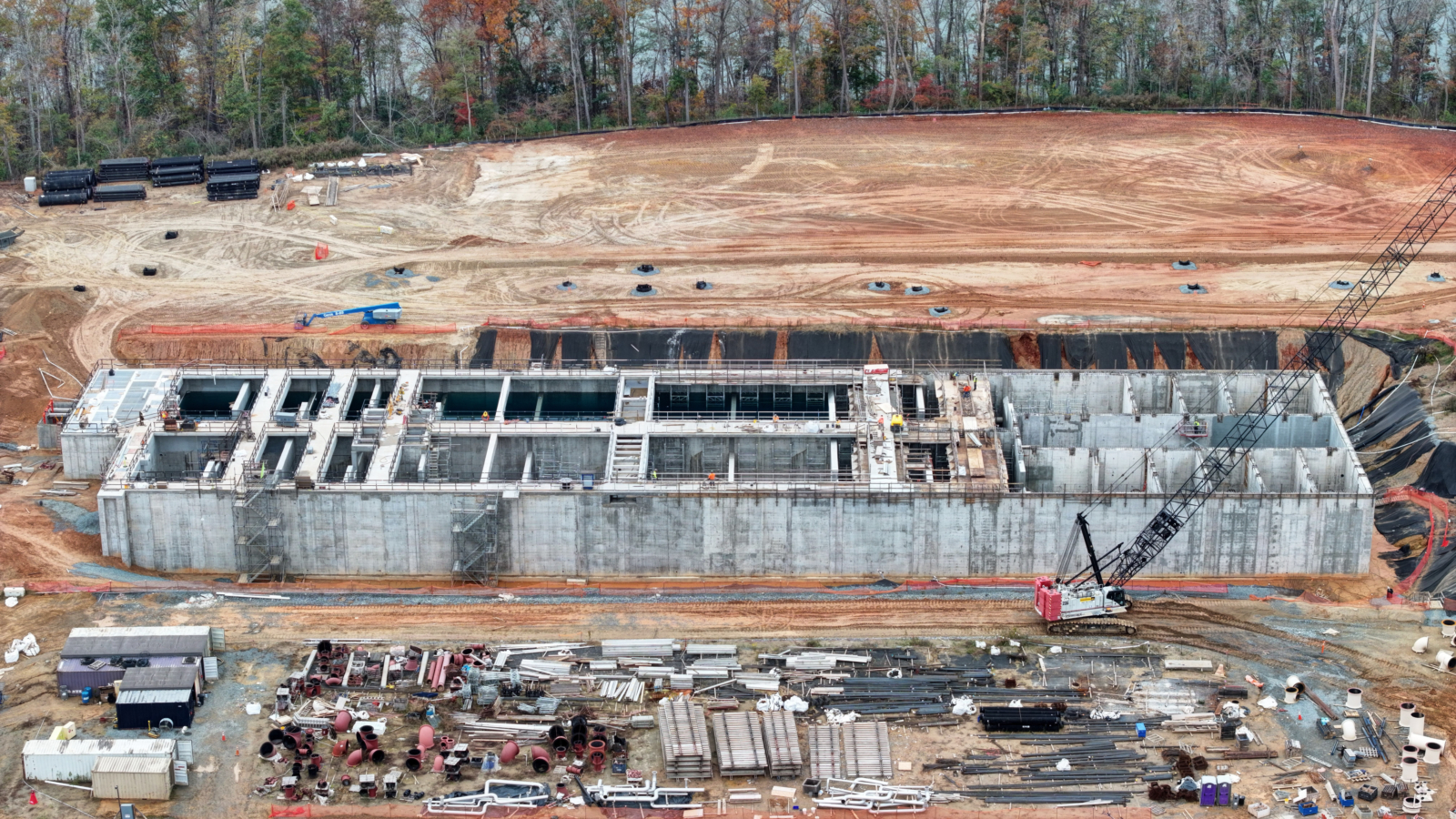Informed Infrastructure’s December 2024 issue features the Stowe Regional Water Resource Recovery Facility’s (Stowe RWRRF) advanced treatment technology in the article, “New Charlotte Water Facility Meets Stringent Standards.”
When updated federal environmental guidelines meant that the existing wastewater treatment plants in Mount Holly and Belmont would require major renovations, studies determined it would be more cost-effective and environmentally sustainable to build a regional wastewater treatment facility that would replace these two aging plants and serve not only eastern Gaston County, but also western Mecklenburg County.
So Charlotte Water teamed up with its two neighboring cities to begin work on the largest infrastructure project the utility had ever undertaken. Stowe RWRRF will cost more than $600 million and require 10 full-time employees to staff it 24 hours a day. It is expected to open officially in 2027.
Stowe RWRRF will include one primary clarifier that will be 100 feet in diameter, as well as two biological nutrient removal basins of five-stage fermentation consisting of various anaerobic, anoxic, deoxygenation, post anoxic and aerobic zones. The article goes into more detail about Stowe’s water cleaning processes, such as a modern densified activated sludge (DAS) biological nutrient removal, for those who enjoy learning about engineering.
Stowe’s water cleaning technology will ensure that the water that is released back into the Catawba River will be near drinking water quality. That is crucial for maintaining high environmental standards, as well as the area’s robust ecotourism business. Visitors and locals alike frequently kayak, boat, raft, fish and swim in the Catawba River, enjoying its scenic and peaceful natural surroundings while pursuing water sports.
Stowe RWRRF will not have onsite solids treatment; however, solids stripped from the water there will be transferred and treated at the McAlpine Creek Wastewater Management Facility as part of the Regional Solids Transfer Project.
Another exciting element to this project is the use of Horizontal Directional Drilling (HDD). Water flows will travel from Mount Holly into the Stowe Headworks system via one of two force mains installed via HDD through tunnels in the bedrock deep under the Catawba River. This means that the flow of the Catawba River will not be disrupted by this project.
Moreover, the facility will treat wastewater closer to where it is created, which will cut down on the 27-mile route it used to take to send wastewater from the NorthLake Mall area all the way down to Pineville, meaning less overall energy consumption. Stowe’s Administration Building likewise will be LEED certified and include multiple electric vehicle chargers in the parking lot near the facility.
Importantly, Stowe RWRRF is being built with the future unpredictability of climate change in mind. It is designed with a state-of-the-art instrumentation, control and operation system to help staff adapt as quickly as possible to environmental issues such as rapid temperature changes or powerful thunderstorms.
Check out this fascinating feature for all the details and learn more about Stowe RWRRF by visiting our Stowe 101 website.

